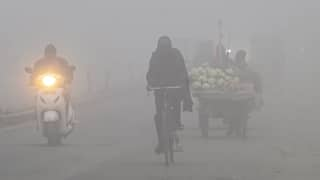'Smaller countries fear becoming collateral damage in competition between great powers,' says UN chief
Kathmandu, Oct 31 (PTI): UN chief Antonio Guterres on Tuesday said as geopolitical tensions rise, global divisions are becoming deeper and more dangerous, and "smaller countries fear becoming collateral damage in competition between great powers.

Kathmandu, Oct 31 (PTI): UN chief Antonio Guterres on Tuesday said as geopolitical tensions rise, global divisions are becoming deeper and more dangerous, and "smaller countries fear becoming collateral damage in competition between great powers".
Guterres made these remarks during his address to Nepal's parliament.
The United Nations Secretary-General also spoke on the ongoing conflict in the Middle East, acknowledging that despite being thousands of miles away, Nepali citizens were among the victims of Hamas' brutal attacks in Israel.
He extended his condolences to the families of the 10 Nepalese students who lost their lives during an attack by Hamas militants in Israel and expressed his best wishes for the safe return of Bipin Joshi, a student who is currently missing.
“As geopolitical tensions rise, global divisions are becoming deeper and more dangerous. Smaller countries fear becoming collateral damage in competition between great powers,” Guterres said.
Lauding Nepal’s peace process, the General Secretary said, "Your country has successfully calmed the storms of conflict and moved from war to peace. A process the United Nations has been proud to support”.
"This small country has made an outsized contribution to international peace...you are preparing the final stages of your peace process - healing the wounds of war through transitional justice. A process that must help to bring peace to victims, families and communities haunted by questions, and scarred by injustice; and help put the past to rest,” he noted.
The UN chief underscored the need to implement the transitional justice mechanism saying, “Transitional justice can play a vital role in securing lasting peace.” Over 17,000 people were killed and thousands were displaced, mostly throughout rural Nepal, during the armed Maoist movement in Nepal that lasted from 1996 to 2006.
The conflict began on February 1996, when the CPN (Maoist) initiated an insurgency to overthrow the Nepali monarchy and establish a people's republic. The revolution ended with the signing of the Comprehensive Peace Accord on November 2006.
Emphasising Nepal's commitment to global peace and security, Guterres pointed out that the Himalayan nation is the second-largest contributor of troops to United Nations missions worldwide.
India has been the largest troop contributor to UN missions since its inception.
Nepal, the UN chief said, "is a promoter of peace, a champion of multilateralism, and a staunch supporter of sustainable development and climate action”.
Underlining the disastrous impact of global warming, Guterres said, “Glaciers are melting at records...The effect is devastating. Swollen lakes bursting, rivers and seas rising, cultures threatened. And mountain sides exposed, inflaming the risk of rock slides, landslides and avalanche.” He said the world must act now to protect people on the frontline and to limit global temperature rise to 1.5 degrees Celsius. The UN chief also appealed to the international community to donate funding to help build resilience in effected communities.
As climate catastrophe is accelerating with a deadly force, the world could learn much from Nepal in responding to these crises, Guterres said.
He also recognised Nepal's unique position, nestled between two major powers (India and China), and commended the nation for forging its own path to safeguard sovereignty and independence.
Guterres also underscored the need for reform in the United Nations, including the Security Council.
“Developing countries must have far greater representation in international institutions,” he said, adding, “I have called for reform of the outdated United Nations Security Council.” Guterres said he “has proposed measures to reform the global financial architecture - so that it better represents developing countries and responds to their needs”.
He expressed the UN's commitment to support Nepal's graduation from Least Developed Country (LDC) status, underlining that this transition is imminent.
During his visit to Nepal, which began on Saturday, Guterres met with President Ramchandra Poudel and Prime Minister Pushpakamal Dahal "Prachanda", among other dignitaries. PTI SBP SCY AKJ SCY
(This story is published as part of the auto-generated syndicate wire feed. No editing has been done in the headline or the body by ABP Live.)






































